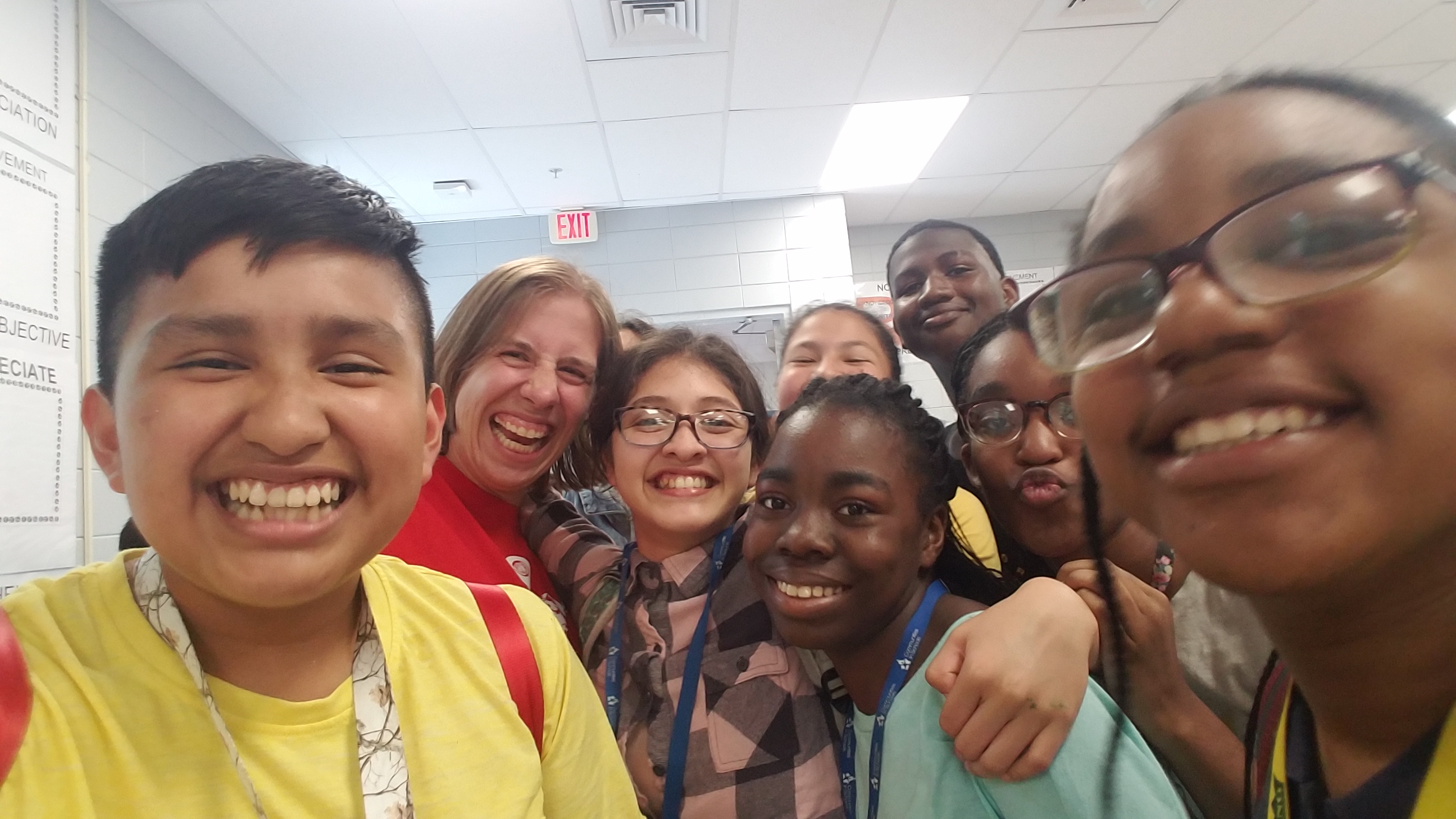In every school you find them, those teachers who appear to hate or at the very least dislike kids, the ones who most frequently complain yet demand appreciation from everyone for their daily sacrifices, the ones who balk when asked to try something new to help the students in their care. Many things over the past few years of teaching have prompted me to reflect on this but the specific impetus came a couple weeks ago when I learned of hostile responses from a handful of teachers to the idea of devoting more time to differentiating instruction for the mushrooming English Language Learner (ELL) population at my new school, a recent phenomenon. The discussion of how to best help our SLIFE (ELLs with limited literacy or instructional experience) revealed the steadfast refusal of some teachers to teach every student in their care.
Educators have one primary responsibility, to teach every student that crosses their path to the best of their ability. (We should have to take our own version of the Hippocratic oath but that’s for another day.) For as long as I have worked in education, I have striven towards this goal, frustrated or disappointed when I realize that I could have done a better job. While searching for ways to improve my practice, I have gravitated towards like-minded individuals, incredibly blessed in my first two years of my restarted career to be part of a whole team of these people, knowing that when my students left ELA to go to Social Studies, Math, or Science, they had teachers seeking to reach them the same way I did. My two best teaching friends, one of whom I teach with again now, I gravitated towards because I saw the amazing things happening with their students, not just academically but also holistically. I take comfort in the fact that people like them teach in our schools.
These people, however, often find themselves vastly outnumbered by the mediocre, by those with their heart in the right place but lacking the ability or motivation to go the extra mile. Even worse, some in the education profession have either become jaded and scarred by their teaching years or never had the ability for compassion and empathy. I first encountered this type in my practicum where during planning periods and after school, the other seventh grade teachers constantly complained. I remember wondering why they taught in the first place. Listing all the times I have seen this throughout my now nearly seven years of experience in the education profession would take far too long and paint a potentially irredeemably depressing picture. I will simply list one more example, the one that prompted this entry.
Teaching ELLs presents an understandable challenge for many education professionals. Imagine trying to learn chemistry in Swahili. To understand the concept itself, you must translate every word from the text and from the teacher. This takes time, time most students often do not have. That’s just one challenge. For students who have no or limited literacy, popping the text into Google translate and handing them words in a language they cannot read does nothing except allow a person to check the differentiation box. Many more challenges exist, but these challenges can be overcome with purposeful work. That’s the work to which many object. The aforementioned teachers stated outright in the professional development that they weren’t going to do anything for these students and if someone had a problem, they could go ahead and tell the administration. When my friend, who teaches on the same grade level as these other teachers, told me what they said, my jaw dropped open. The ESOL teacher had spent and continues to devote countless hours to discovering, compiling, and sharing out all sorts of techniques, including pre-made resources. These teachers practically spat in her face when they said this. With these words, the teachers declared that they taught only certain students in their class, the ones who did not require extra work. Part of this may also stem from prejudice though I do not presume to know their heart.
When faced with these sorts of challenges, how should the dedicated educator respond? I can think of a few ways, none of them easy or perfect. The first response may be similar to how I responded the morning after I found out. While on my run, I gave those teachers a piece of my mind, indulging in righteous anger. I don’t even know which teachers harbor these sentiments; I spounted off against the general idea. This first response helps in a couple ways. One, you can preserve working relationships by not spouting off in the heat of the moment. Two, you can think through your own response to move past the indignation to get to the root cause of why you feel that way. Thus, if you ever do need to verbally respond to the person, you will be able to do so calmly, logically, and respectfully.
Second, the dedicated educator should take those reluctant educators up on their offer to take it up with the administration. Since this initial training took place on a one ot one basis, and a couple teachers already challenged them in that meeting, the next step is to take it to the next higher level. A single teacher cannot single handedly change the culture of a school. Every piece, every teacher works together for the benefit of the students. Part of working together means turning to those with the authority and power to deal with the situation.
Lastly, the devoted educator can control only their own behavior. By cultivating an attitude of receptiveness, they can build relationships with other coworkers, even those most reluctant to adopt new strategies and thus communicate the willingness to help them. Additionally, the hard work in the individual classroom will inevitably yield positive results which, when combined with outreach to others will aid in the slow but worthwhile change to school culture.
